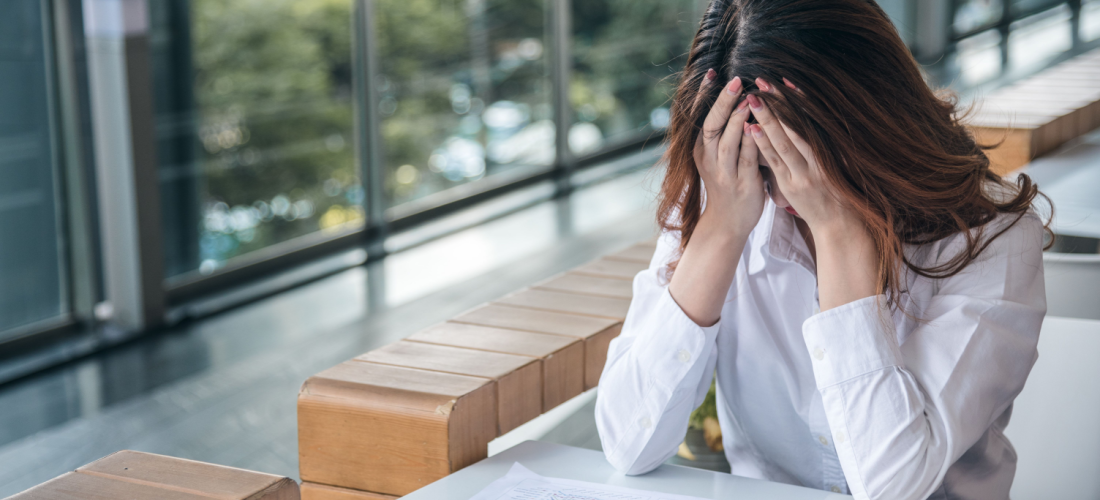Discover long-term relief with a licensed therapist for anxiety you can trust
Discover long-term relief with a licensed therapist for anxiety you can trust
Blog Article
Exploring Various Approaches in Coaching for Stress And Anxiety Condition for Long-term Adjustment
When dealing with anxiousness problems, it's necessary to check out a range of therapy approaches. Each method supplies one-of-a-kind understandings and devices to help you handle your symptoms properly. You might find that integrating methods can generate the most effective results. Comprehending the subtleties of these strategies is crucial to promoting long-term modification. What if the appropriate mix could release a new level of psychological wellness for you?
Recognizing Anxiety Conditions: A Quick Review
Anxiousness problems, which influence numerous individuals worldwide, can substantially impact day-to-day live. You might experience frustrating feelings of worry or stress that appear unmanageable. These sensations can result in physical signs and symptoms like a racing heart, sweating, or also dizziness. Common types of anxiety problems consist of generalised anxiety problem, panic condition, and social anxiousness condition. Each has distinct indicators, but they all share a tendency to disrupt your routine and relationships.Understanding the origin of your anxiety is important. It might stem from genetics, mind chemistry, or life experiences. Identifying your triggers can help you manage your responses much better. It is necessary to remember that you're not the only one in this struggle. Many people face comparable challenges, and looking for assistance is a solid step towards sensation much better. By discovering anxiety disorders, you're already on the path to understanding and handling your problem better.
Cognitive-Behavioral Therapy: Challenging Unfavorable Thought Patterns
In Cognitive-Behavioral Treatment, you'll start by recognizing the adverse idea causes that add to your stress and anxiety. You'll work on changing them with more favorable options when you acknowledge these thoughts. Together, you'll build reliable coping methods to aid handle your anxiety in everyday situations.
Identifying Negative Thought Triggers

When you encounter moments of distress, recognizing the specific triggers behind your negative ideas can be important in handling stress and anxiety. Start by taking note of scenarios that prompt sensations of concern or concern. Is it a jampacked area, a forthcoming target date, or a conversation with specific people? Write down these circumstances in a journal. This will help you recognize patterns in your reasoning. Notification physical feelings that accompany your negative ideas, like an auto racing heart or tightness in your upper body. By determining these triggers, you get insight into what's sustaining your anxiousness. Comprehending these connections is the very first step in challenging those thoughts and inevitably reclaiming control over your emotional reactions.
Changing Thoughts With Positives
Challenging adverse thought patterns is a crucial action in changing your attitude and reducing stress and anxiety. You might frequently locate yourself caught in cycles of insecurity or disastrous reasoning. As opposed to allowing these ideas dictate your feelings, technique changing them with reasonable options or favorable affirmations. As an example, when you believe, "I can't manage this," change it to, "I can take care of challenges one step each time." This simple change can substantially influence your mood. Consistently identifying and countering these negative thoughts helps create a healthier internal dialogue. Remember, it takes time and effort, but constantly exercising this strategy can bring about lasting change, empowering you to face anxiety with renewed confidence and resilience.
Building Coping Strategies Together
Replacing unfavorable ideas is just the beginning of taking care of anxiousness efficiently. To produce long-term change, you require to construct coping methods that empower you. Cognitive-Behavioral Therapy (CBT) helps you identify and challenge those unhelpful thought patterns. With each other, you and your therapist can discover just how these thoughts influence your feelings and behaviors.Start by creating sensible strategies, like journaling or mindfulness exercises, that allow you to challenge stress and anxiety head-on. When you face your fears progressively, you'll discover to respond in a different way.

Mindfulness and Acceptance-Based Approaches: Cultivating Present-Moment Recognition
As you browse the complexities of stress and anxiety, incorporating mindfulness and acceptance-based strategies can considerably boost your ability to grow present-moment awareness. By concentrating on the below and now, you'll discover that you can observe your ideas and feelings without judgment (Counseling services for anxiety). This technique helps you acknowledge your anxiousness without feeling overwhelmed by it.Engaging in mindfulness exercises, such as deep breathing, body scans, or guided meditations, permits you to ground on your own in your current experience. Acceptance-based methods urge you to welcome your emotions rather than battle versus them. When you approve your feelings, they lose their power over you.Incorporating these methods right into your day-to-day routine can transform just how you respond to stress and anxiety. You'll create strength and learn to browse difficult scenarios with greater convenience. Inevitably, growing present-moment awareness lays the foundation for enduring change, empowering you to lead a much more satisfying life
Direct Exposure Therapy: Confronting Worries Slowly
Exposure therapy helps you confront your fears in a gradual way, making it less overwhelming. You'll learn strategies to encounter anxiety-provoking scenarios action by action, while additionally constructing coping strategies to handle your responses. This technique encourages you to take control and lower anxiousness with time.
Steady Direct Exposure Strategies

When dealing with stress and anxiety, gradually challenging your concerns can be an effective means to restore control. This technique, called progressive direct exposure, involves gradually revealing yourself to the situations or objects that trigger your anxiety. Start with less challenging scenarios and progressively function your way approximately more tough ones. For example, if you hesitate of public talking, you could begin by speaking before a mirror, after that progress to sharing thoughts with a buddy, and at some point address a little team. Each step assists desensitize you to the anxiety, building your self-confidence with time. Remember, it's necessary to speed on your additional info own and celebrate tiny victories as you relocate through this procedure, reinforcing your capacity to manage anxiousness properly.
Building Coping Techniques
Building efficient coping approaches is important for handling stress and anxiety, specifically as you confront your worries slowly - Counseling services for anxiety. One powerful technique is direct exposure treatment, where you begin by facing your worries in a regulated fashion. Begin with much less frightening scenarios and gradually work your method approximately even more difficult scenarios. This progressive direct exposure helps desensitize you to stress and anxiety triggers, making them less overwhelming.Incorporate leisure strategies, such as deep breathing or mindfulness, to soothe your mind throughout direct exposure. Track your progress, commemorating tiny success in the process to improve your confidence. Remember, it's okay to take your time; the objective isn't excellence however stable improvement. By developing these methods, you'll empower yourself to browse stress and anxiety and accept life much more fully
Psychodynamic Treatment: Discovering Root Reasons of Stress And Anxiety
Psychodynamic therapy discovers the subconscious mind, revealing the origin of your stress and anxiety. By examining your thoughts, feelings, and previous experiences, this approach aids you discover underlying disputes and unresolved concerns that might add to your present stress and anxiety. You'll deal with a therapist to investigate childhood years experiences, relationships, and psychological patterns that shape your feedbacks today.As you obtain understanding right into these deeper layers of your mind, you'll begin to identify just how previous events influence your existing behavior. This understanding can cause catharsis, permitting you to refine emotions you could have suppressed.Through the therapeutic partnership, you can also recognize protection systems that may have created in time, offering a clearer path to change. Ultimately, psychodynamic treatment outfits you with the devices to address your anxiousness at its core, advertising long lasting transformation in your psychological health.
Alternative and integrative Approaches: Integrating Methods for Greater Efficiency
Integrating various healing methods can enhance your trip towards managing stress and anxiety extra efficiently. By incorporating elements from cognitive-behavioral therapy, mindfulness methods, and alternative strategies, you can create a tailored technique that resolves your one-of-a-kind demands. You might make use of cognitive-behavioral methods to test negative thought patterns while including mindfulness exercises to ground yourself in the existing moment.Additionally, exploring holistic methods such as yoga or reflection can advertise relaxation and decrease anxiousness symptoms. This blend allows you to establish greater self-awareness and resilience.Experimenting with these diverse methods can assist you find what reverberates most with you. Bear in mind, it has to do with discovering a synergy that works, instead than staying with a single technique. This integrative strategy not just offers immediate alleviation yet likewise cultivates lasting skills for taking care of stress and anxiety, empowering you to reclaim control over your life.
The Function of Assistance Systems: Structure Resilience Via Link
While it may seem that handling stress and anxiety is a solitary journey, having a solid assistance system can play a vital function in your durability. Bordering yourself with compassionate friends, family members, click this link or support system creates a risk-free space where you can honestly share your experiences and feelings. When you get in touch with others, you remind yourself that you're not the only one in this struggle.These connections use support and can give sensible coping approaches that have functioned for others. It's additionally an opportunity to obtain viewpoint; buddies can help you see circumstances in a different way, decreasing feelings of isolation.Moreover, emotional support promotes a sense of belonging, which can significantly alleviate stress and anxiety signs and symptoms. By leaning on your support system, you can construct resilience and deal with challenges better. Remember, connecting for assistance suggests strength, and it can make all the distinction in your trip toward taking care of stress and anxiety.
Frequently Asked Concerns
What Are the Usual Symptoms of Anxiousness Conditions?
You might experience uneasyness, exhaustion, problem focusing, impatience, muscle stress, and rest disruptions. Physical signs and symptoms can include quick heart beat, sweating, and shivering. Identifying these indications early can help you seek appropriate support and treatment.
How Long Does Treatment Generally Last for Anxiety Conditions?
Therapy for anxiety problems normally lasts anywhere from a couple of weeks to numerous months. It truly depends on your specific needs, progress, and the strategies your therapist uses to assist you manage your anxiousness effectively.
Can Medicine Be Used Together With Treatment for Stress and anxiety?
Yes, medicine can absolutely be utilized alongside treatment for anxiety. Combining both approaches usually boosts treatment performance, assisting you take care of symptoms while exploring underlying concerns through counseling (Counseling services for anxiety). Always consult your health care provider for customized suggestions
Exist Self-Help Strategies for Taking Care Of Anxiety?
Yes, there are a number of self-help approaches for taking care of anxiety. You can practice mindfulness, participate in regular workout, preserve a balanced diet plan, develop a routine, and utilize deep breathing strategies to assist minimize stress and anxiety signs efficiently.
Just how Do I Know if I Required Professional Help for Stress And Anxiety?

Report this page